ABLE technology helps those living with spinal cord injury to walk
People living with spinal cord injury benefit from pioneering ABLE technology: an affordable, lightweight and easy-to-use exoskeleton.
Approximately 1.5 million people a year worldwide suffer damage to the lower spinal cord from illness or a car accident.1 This complex, life-changing condition affects the patient and their family, impacting them physically, emotionally and financially. In addition, almost 90% need personal supervision to help with daily living – severely affecting their independence.
However, people living with a spinal cord injury could walk again with a robotic exoskeleton.2,3 The current technology costs 100,000 euros, weighs between 20 and 25 kg, and isn’t adapted to specific motor needs. Enter ABLE technology, the result of eight years’ research at Universitat Politècnica De Catalunya.
“I have tried three exoskeletons and only with ABLE I feel like being in control of my walking again.”
Ivan, spinal cord injury patient
A step forward in exoskeleton history as ABLE allows patients to stand up from their wheelchair, walk and sit down.
ABLE uses an electric actuator, a device which flexes and extends the knee during walking to mimic natural human movement. The technology also features an inertial sensor which detects when people want to take a step forward.
Robotic exoskeletons like ABLE help improve mobility and motor function, allowing patients to walk longer distances with better balance. They can also help alleviate the many health issues of a sedentary lifestyle. Vitally, being able to walk around at home increases patients’ self-esteem, and independence.
With lower rehabilitation expenses and less need for medical visits, ABLE allows patients to continue their recovery at home, saving healthcare costs.
“Developing low-cost exoskeleton technology without sacrificing quality is a challenge that the engineers at ABLE appear to have handled in an excellent manner.”
Paolo Bonato, PhD, International KOL in rehabilitation engineering and exoskeletons
EIT Health has supported ABLE from the start, helping turn the idea into a validated solution.
Market validation has come with over 150 stakeholder interviews, and, better still, the team has 10 interested buyers. Next steps for the consortium include a clinical trial, obtaining the certification mark and developing ABLE for home use.
Eventually, ABLE want to provide solutions for not only people living with spinal cord injury, but also for people with other mobility impairments and neurological conditions.
External partners
- Institut Guttmann
- Universitat Politècnica De Catalunya
[1] Anoushka Singh et al – Global prevalence and incidence of traumatic spinal cord injury. Clin Epicemiol, 2014 Ferro S et al. Incidence of traumatic spinal cord injury in Italy during 2013-2014: a population-based study. Spinal Cord, 2017.
[2] P.L. Ditunno, M. Patrick, M. Stineman, J.F. Ditunno, Who wants to walk? Preferences for recovery after SCI: a longitudinal and crossectional study, Spinal Cord 46 (7) (2008) 500-506.
[3] C.L. Calhoun, J. Schottler, L.C. Vogel, Recommendations for mobility in children with spinal cord injury, Topics in Spinal Cord Injury Rehabilitation 19 (2) (2013) 142-151.
Members
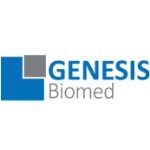
CLC/InnoStars: Spain
Partner classification: Business
GENESIS Biomed is a consultancy firm in the biomedical healthcare sector specialized in providing consulting services to spin-off and start-up companies, entrepreneurs and research centers. Based in our expertise we help entrepreneurs and researchers to shape their business plan and we support them in the private fundraising process. We have worked on 253 projects of 15 different types and we have raised more than 67.5 M€ in the last 6 years. Our expertise domains are biopharmaceutical, biotechnological, medical devices, in vitro diagnostic, digital health nutraceutical and cosmetic. With more than 20 years of expertise in the healthcare sector, we are born in May 2017 and we are located in the Barcelona Science Park and in the center of Madrid.
GENESIS Biomed
GENESIS Biomed, Carrer de Baldiri Reixac, 4-12-15, 08028 Barcelona, España

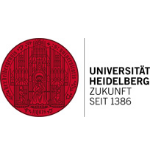
CLC/InnoStars: Germany
Partner classification: Education, Research, Tech Transfer, Clusters, Other NGOs, Hospital / University Hospital
As a comprehensive university, Heidelberg offers, in collaboration with its university hospital, a fertile ground for innovations in the different action fields of healthy living & active ageing by drawing on insights from all academic disciplines.
Heidelberg University
Heidelberg University, Seminarstraße 2, 69117 Heidelberg, Germany
Key Activities in Research and Developement
Biomedical engineering, Life Sciences, Social sciences / health economics, Clinical research
Key Activities in Social Innovation
Healthcare provision, Payers
Key Activities in Business Creation
Incubation, Technology Transfer
Key Activities in Education
Entrepreneurship training, Technical faculties, Medical faculties, Healthcare professional education/training

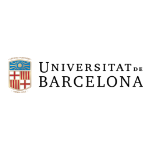
CLC/InnoStars: Spain
Partner classification: Academic, Education, Research
The University of Barcelona is the most intensive university in research in Spain. Our university has a great capacity for innovation in various fields, of which the health sector stands out both due to the amount and the quality of the outcomes produced by faculties such as the Faculty of Medicine and Health Sciences, the Faculty of Pharmacy and Nutrition or the Faculty of Psychology. Our activity within the EIT Health projects is often enriched and sometimes dominated by the technology and/or knowledge created in the Faculties of Biology, Chemistry, Physics, Mathematics and Computer Science or even Fine Arts. We have also several Research Institutes that merge multidisciplinary teams working on topics as diverse as Neuroscience, Complex systems, Biomedicine, etc. as well as a couple of Technology Transfer Institutes such as CREATIO https://www.ub.edu/creatio/en/, the first Academic Center for the Production and Validation of Advanced Therapies in Spain, and Farmatec http://www.ub.edu/sdm/in_index.htm, a Service of Development of Medicines under GMP regulation
University of Barcelona
University of Barcelona, Gran Via de les Corts Catalanes, 585, 08007 Barcelona, España
Key Activities in Research and Developement
https://web.ub.edu/en/research
Key Activities in Corporate Innovation
https://web.ub.edu/en/the-university
Key Activities in Business Creation
https://startub.ub.edu/en/community/incubated-companies/
Key Activities in Education
https://web.ub.edu/en/learn

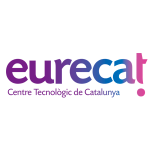
CLC/InnoStars: Spain
Partner classification: Business, Research
Partner type: Network Partner
Eurecat is a benchmark industrial technology provider offering business services, applied R&D, technology services and consulting, training, development of innovative products and services, promotion and dissemination of technological innovation
Key Activities in Research and Developement
Other research, Biomedical engineering, Life Sciences
Key Activities in Corporate Innovation
Med Tech, ICT, Diagnostics, Consumer products, Nutrition
Key Activities in Business Creation
Technology Transfer, Testing & Validation
Key Activities in Education
Entrepreneurship training

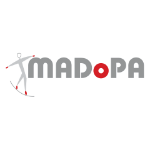
CLC/InnoStars: France
Partner classification: Research, Tech Transfer, Clusters, Other NGOs
MADoPA is a Living Lab specialising in co-creation, experimentation and evaluation of technologies and services for the elderly. MADoPA is a non profit association created in 2009, financially independent and involved in multiple European, national and regional projects.
MADoPA
MADoPA, 2 Rue Gustave Eiffel, 10430 Rosières-prés-Troyes, France
